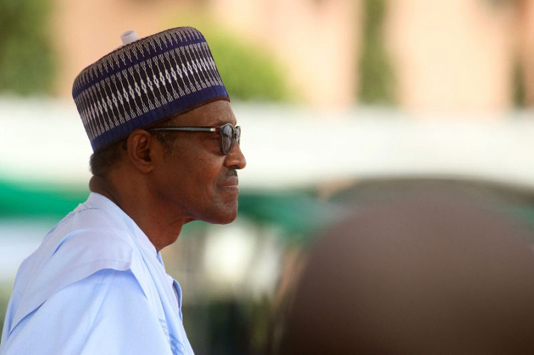LAGOS, Jan 27, 2019 (BSS/AFP) – International pressure mounted on
Nigeria’s President Muhammadu Buhari on Saturday after he suspended the
country’s top judge just weeks away from elections, prompting claims from
opponents and civil society groups of an attempted judicial “coup”.
The European Union, the United States and Britain expressed concern at the
removal of Chief Justice Walter Onnoghen, who as head of the Supreme Court
would have ruled on any dispute in the February 16 elections.
Onnoghen is accused of failing to declare foreign currency bank accounts,
in breach of rules governing public officials. But the timing of the charges
and the manner of his removal have caused consternation.
Former military ruler Buhari, 76, was accused of overreaching his powers
for bypassing parliament, which constitutionally has to sanction such a move.
Onnoghen had been on the verge of swearing in judges of election
tribunals. His replacement, acting chief justice Ibrahim Muhammad Tanko,
conducted the ceremony on Saturday.
The European Union Election Observation Mission said it called on “all
parties to follow the legal processes provided for in the constitution and to
respond calmly to any concerns they may have”.
The US Embassy in Abuja said it was “deeply concerned” Onnoghen had been
replaced “without the support of the legislative branch”.
The British High Commission in the capital voiced its “serious concern”
and said the decision “risks affecting both domestic and international
perceptions on the credibility of the forthcoming elections”.
London and Washington this week threatened consequences for anyone
involved in electoral fraud or violence, including the refusal of visas.
In a statement late Saturday, the Nigerian presidency said it was
determined to ensure free, fair and credible elections but would not allow
foreign interference in the nation’s affairs.
“The federal government welcomes the prevailing keen interest and
partnerships for successful elections in, and a peaceful Nigeria,” said
presidential spokesman Garba Shehu.
“However, we reject any interference or perception management that promotes
apprehension,citizens distrust or undermines the transparency and
acceptability of the outcomes of our electoral process,” he said.
“Nigeria reserves the right to be insulated from suggestions and or
interference with respect to wholly internal affairs.”
– ‘Attempted coup’ –
Buhari, of the All Progressives Congress (APC), came to power in 2015 on a
pledge to stamp out corruption and is seeking another four-year term.
He was out campaigning in southwest Nigeria on Saturday.
His main challenger, Atiku Abubakar, 72, from the Peoples Democratic Party
(PDP), however, suspended his campaign for 72 hours in protest at Onnoghen’s
removal.
On Friday, he called the move “a brazen act of dictatorship” and “anti-
democratic”, in a clear reference to Buhari’s army past and autocratic rule
in the 1980s.
Using similar language, the Nigerian Bar Association — the umbrella body
for lawyers — said Buhari had mounted an “attempted coup against the
Nigerian judiciary”.
The independent Punch newspaper said the move could trigger “an
unnecessary constitutional crisis and, perhaps, derail 20 unbroken years of
democratic governance”.
Nigeria returned to civilian rule in 1999 after decades of military
government.
Buhari has previously been accused of using state security apparatus to
target political opponents from the PDP, but being less swift to act against
members of his own party.
Buhari said he suspended Onnoghen after receiving an order from the Code
of Conduct Tribunal hearing the case, despite a Court of Appeal injunction
ordering the lower court to suspend proceedings while an application to throw
out the charges was heard.
The NBA warned the executive arm of government’s actions were
unconstitutional and “portends a slide into anarchy”.
The Situation Room group of Nigerian civil society organisations called
for the emergency recall of parliament to give a “legislative response”.
Any return of lawmakers would likely set up another confrontation between
the legislature and executive, as Senate leader Bukola Saraki is a prominent
Buhari opponent.
He was cleared of similar non-declaration of assets charges on appeal at
Onnoghen’s Supreme Court last year.
– Moral authority –
Under the Nigerian constitution, the Senate has to approve an application
for the removal of the chief justice by a two-thirds majority.
Law professor Itse Sagay, who heads a government-appointed advisory body
on graft, defended Buhari, who indicated Onnoghen should have recused himself
after being charged.
The judge had admitted a failure to comply with assets declaration
requirements, he said, adding: “The suspension is morally justified and
legally justified.”
Debo Adeniran of the Coalition Against Corrupt Leaders lobby group also
backed the president, saying the suspension would “send a correct signal to
other judges to sit up”, he said.



